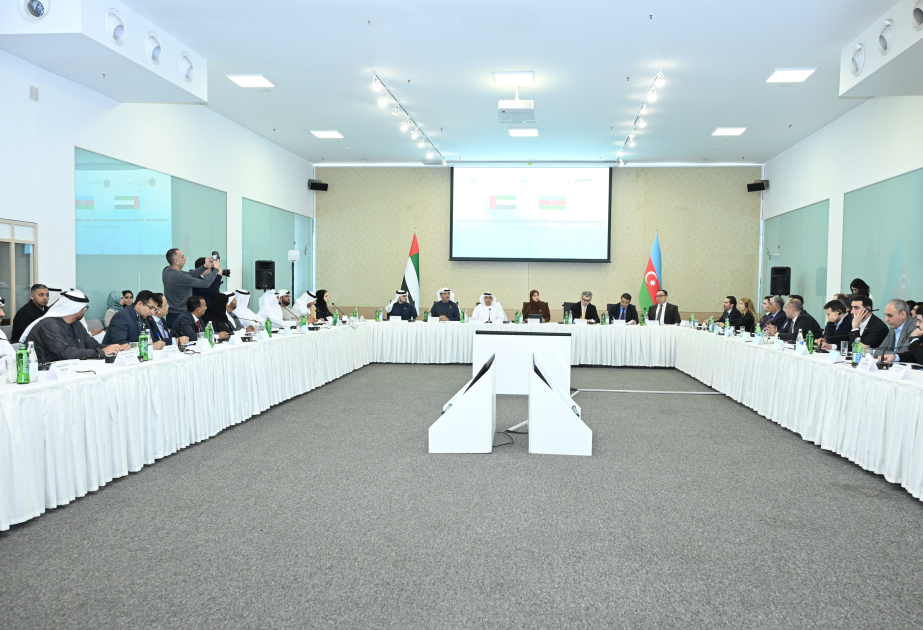Last week, employees of the State Tax Service of Azerbaijan celebrated their professional holiday. As part of the events dedicated to the 25th anniversary of the country's modern tax system, the implemented reforms and achieved successes were highlighted.
The development of the tax system plays a crucial role not only in generating state budget revenues but also in ensuring economic transparency, improving the business environment, and combating the shadow economy. In recent years, steps aimed at enhancing tax administration and improving the quality of services for taxpayers have created conditions for further modernization of this sphere.
Samira Musayeva, Deputy Head of the State Tax Service under the Ministry of Economy, answered Report's questions about the results of the implemented reforms and upcoming priorities.
— The past 25 years have been a successful stage of development for the tax service, which was repeatedly emphasized at the forum last week. Given that the tax system is one of the country's leading structures in terms of ongoing reforms, could you share your opinion on its near future and possible contribution to economic development?
— You rightly noted the significant successes achieved by the tax system. When speaking about the future of tax authorities, it is important to consider the foundation on which it is built. Today, the tax service provides more than 77% of the state budget's fiscal revenues. By the end of last year, budget revenues through the State Tax Service exceeded 15.8 billion manats, of which more than 11 billion came from the non-oil sector. This confirms that the reforms aimed at developing and increasing the transparency of the non-oil sector are yielding positive results.
One of our main contributions to economic development lies in ensuring fiscal sustainability, supporting the transparent development of business entities, promoting employment growth through tax policy instruments, and achieving voluntary compliance with tax obligations by creating convenient administrative conditions for the business environment.
The growth of employment in the private non-oil sector, which resulted from the reforms carried out over the past 6 years, can be called the main indicator of transparency. Employment in this sector has increased by more than 82%, and the wage fund has grown 2.7 times. These achievements have made an important contribution to the economy and facilitated the development and increased transparency of entrepreneurship.
— If we summarize everything you mentioned, it becomes clear that there are already well-defined basic principles for the near future. The State Tax Service has developed a Strategy for 2025-2028. What main indicators and functions will be included in this strategy?
— The Strategy for 2025-2028 aims to enhance fiscal sustainability and improve the business environment. The focus is on developing human capital in tax authorities, increasing professionalism and innovation among employees. The strategy also includes stimulating sustainable economic development through tax mechanisms that support businesses and reinvestment, as well as combating the shadow economy and tax evasion.
The main priority of the strategy is to increase voluntary tax compliance. We aim to improve tax culture and create convenient conditions for paying taxes, which has already yielded positive results: 93% of tax revenues last year were obtained through voluntary payments.
— Are there plans to develop a new Tax Code?
— Yes, the development of a new Tax Code began last year. In the first stage, a special section was created on the tax authority's website to collect proposals from the public and taxpayers. Consultations were also held with large holdings, the business community, and consulting companies, which allowed for considering the opinions of various parties in the development process.
The main goal of the new Tax Code is to create more understandable and effective tax legislation, optimize the tax burden, and support the development of entrepreneurship. In particular, attention will be paid to stimulating the transition from small to medium-sized businesses, as well as introducing environmental taxes and mechanisms to support sustainability. There are also plans to continue using tax incentives for strategic projects, including projects in the field of renewable energy sources.
— As is known, the State Tax Service is taking steps to minimize the human factor in relations with taxpayers and strengthen the role of digitalization. What innovations await taxpayers in the future in terms of implementing effective tax administration?
— The digitalization of tax administration indeed improves the quality of work of tax authorities and contributes to better tax collection. At the same time, it plays a key role in protecting taxpayers' rights and simplifying the fulfillment of their obligations. Digitalization should be balanced: while strengthening tax control and collecting information about taxpayers, it is also important to improve the quality and accessibility of electronic services. Otherwise, this may lead to a decrease in voluntary compliance with tax legislation, which will affect the overall efficiency of the system.
We focus on data analytics and the use of artificial intelligence for a risk-based approach in tax administration. This will allow for more effective remote control and cross-checks. We will also expand and improve electronic services, especially for micro and small entrepreneurs. Among the innovations are increasing the functionality of mobile applications, simplifying the filling out of declarations, and informing taxpayers about risks. Preventive notification of potential tax violations will help avoid serious sanctions and ensure more effective administration while protecting taxpayers' rights and promoting fiscal sustainability.



















